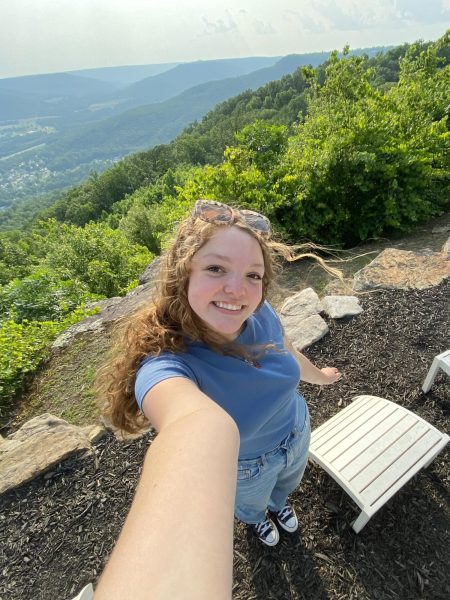Thanksgiving: what has become of one of America’s most important holidays?
Americans across the nation recognize the notable ‘Turkey Day’ each year on the fourth Thursday of November.
November 23, 2022
Many families and friends in the United States gather on the fourth Thursday of November to celebrate fun, food, and football, but do we forget that these things are not all Thanksgiving is about?
In the early 1600s, 102 English settlers known as the Pilgrims arrived at Plymouth on a ship referred to as the Mayflower. These colonists were of the Puritan faith and were attempting to escape the harsh prejudices and persecutions of the Church of England.
After a bitter winter filled with hunger, fear, and illness, only half of the Pilgrims remained in the colony they had toiled to build upon the raw, undeveloped landscape of early America.
However, the brutal circumstances the Pilgrims were in began to look up when on one miraculous spring day, two kind, Indigenous men, Squanto of the Patuxet tribe and Samoset of the Abenaki tribe, came to them on one astonishing visit.
With Squanto’s careful guidance and friendship, the Pilgrims, weakened, desperate, and horror-stricken by the terrible winter, learned how to hunt and catch fish properly, cultivate crops such as corn, and even identify which plants were and were not poisonous.
Through Squanto, the settlers and the nearby Wampanoag tribe were able to forge a beautiful bond that would last for many, many years to come.
In November of 1621, the Pilgrims’ first corn harvest proved to be incredibly plentiful. In response to such great yields, a grand celebratory feast was organized, to which all of the Wampanoag tribe was invited, including Chief Massasoit.
The festivities lasted for several days, and the enormous dinner included not one, not two, but five deer along with as much fowl as they could possibly prepare.
Although the banquet and enjoyable activities that went along with it were wonderful, what truly made the first ever Thanksgiving feast momentous was the newfound friendship and the mingling of cultures the Wampanoag tribe and Pilgrims shared.
The gratefulness the Pilgrims would express toward their God for their recently acquired companions, for their lives, and for their new freedom was the original reason the fourth Thursday of November was established as a national holiday in 1863.
Unfortunately, however, the ideology and traditions of the First Thanksgiving have slowly evolved over the years. The thankfulness of the Pilgrims after the hardships they experienced as well as the harmony they shared with the Indigenous peoples of the New England area have long since faded away from the minds of many Americans today.
Nowadays, Thanksgiving is looked upon as a tumultuous day in which families and friends gather to share sizable lunches or dinners together. There are grandmothers fussing about casseroles and cranberry sauce, uncles that become just a bit too enthusiastic about football, little ones scurrying all over the place and complaining about having to eat green beans, and so, so much more.
It seems, over the years, the traditions and ways Thanksgiving is celebrated have become frivolous and materialistic. This day and time, being thankful for and content with the many or few possessions we have has become a selfless philosophy that has grown to be quite scarce in society.
Quite literally, it has become more and more frequent in recent years that the utterance ‘Turkey Day’ has been utilized to refer to the fourth Thursday of November rather than its original name.
Perhaps this is simply a comical reference to the most infamous dish served at the majority of Thanksgiving dinners.
Nevertheless, considering the selfish, consumerist path the country, and even the rest of the world, is on, this miniscule phrase seems to represent so much more.
Thanksgiving is a time in which we are to look back at all we have achieved and all we have lost and be grateful, still, for all that we have. It should not matter if we have extravagant riches or a scarcity of belongings; we should always at least try to find somewhere in our hearts to be thankful.




